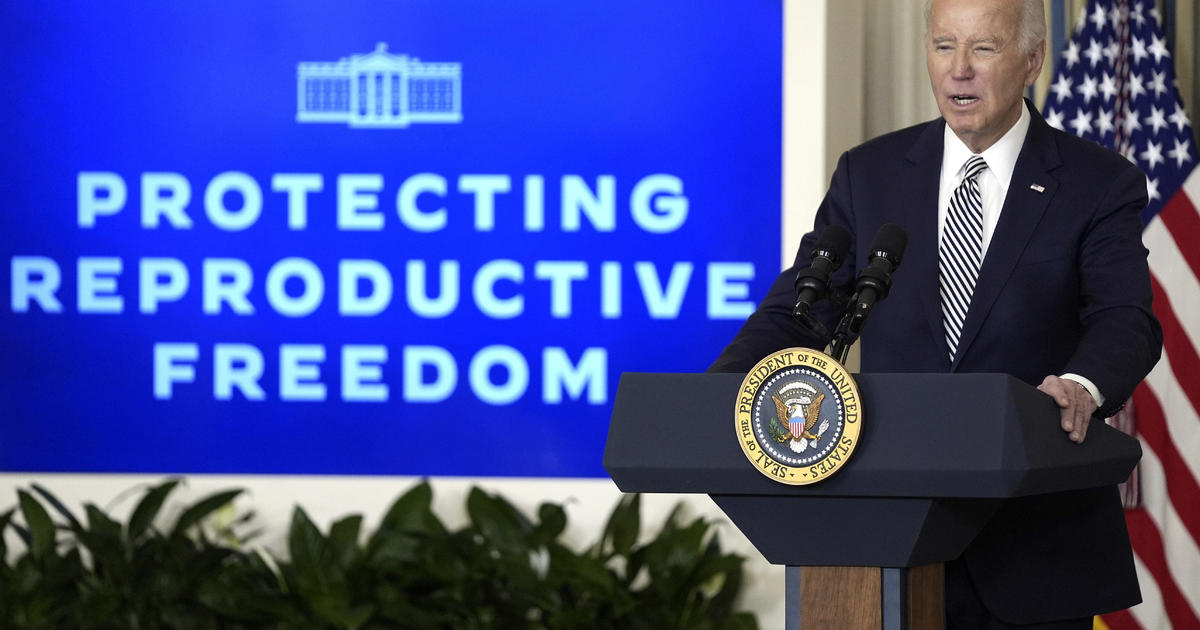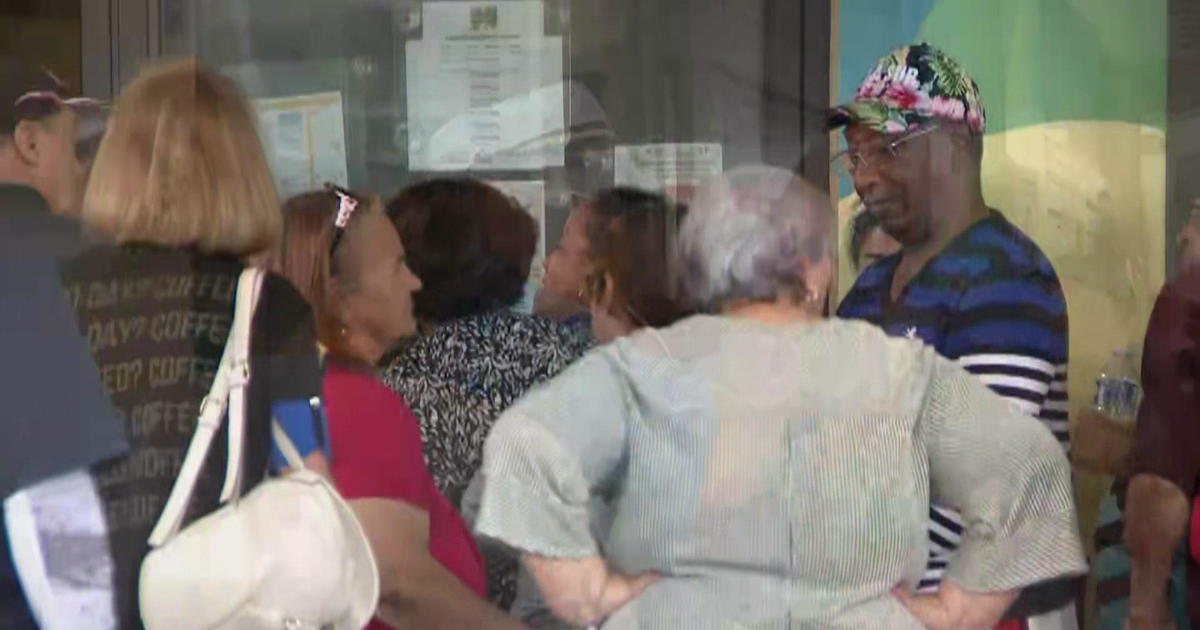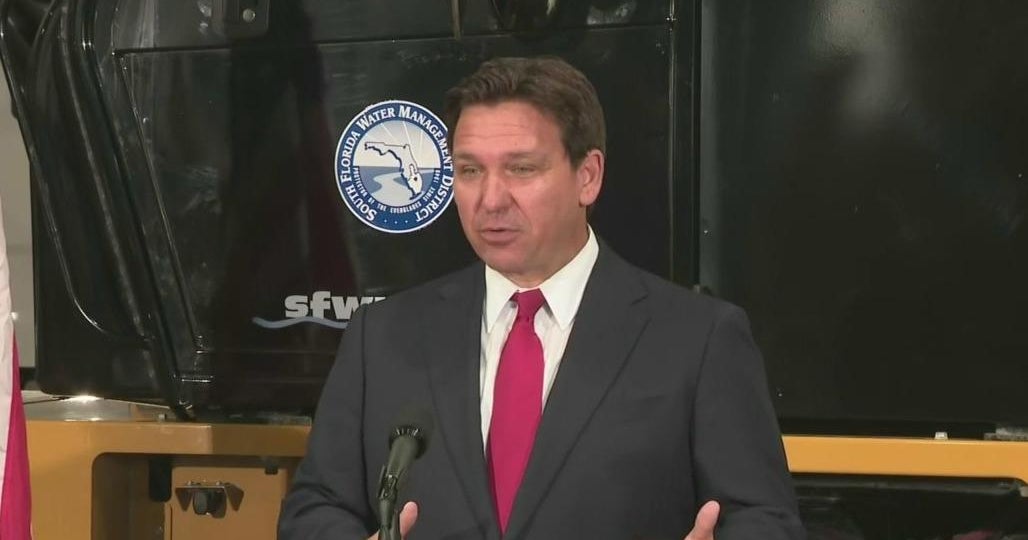Census Citizenship Question Blocked By U.S. Supreme Court Eases Undercount Concerns In Florida
TALLAHASSEE (CBSMiami/NSF) -- The U.S. Supreme Court on Thursday blocked --- at least for now --- a citizenship question from being asked in the 2020 census, saying the Trump administration offered a "contrived" explanation as to why it was needed.
The opinion, written by Chief Justice John Roberts, eased Florida Democrats' concerns that a citizenship question in Florida, which is a magnet for immigrants, would lead to an undercount of the state's population.
"With 750,000 undocumented residents, we need everyone counted so our state can receive important federal resources and congressional representation!" state Rep. Carlos Guillermo Smith, D-Orlando, tweeted shortly after the decision.
Roberts said the U.S. Department of Commerce failed to provide an adequate explanation about why a citizenship question was needed.
"We are presented, in other words, with an explanation for agency action that is incongruent with what the record reveals about the agency's priorities and decision-making process," Roberts wrote.
The decision, however, appeared to leave open the possibility that the Department of Commerce could readdress the citizenship question, if it can justify it.
"We do not hold that the agency decision here was substantively invalid," wrote Roberts, who was joined in the key part of the opinion by justices Ruth Bader Ginsburg, Stephen Breyer, Sonia Sotomayor and Elena Kagan. "But agencies must pursue their goals reasonably. Reasoned decision-making under the Administrative Procedure Act calls for an explanation for agency action. What was provided here was more of a distraction."
Michael McDonald, a University of Florida political-science associate professor who specializes in American elections, also cautioned that the dispute might not be over.
"Let's be clear, Roberts said that Census Bureau could have added the citizenship question if they could have provided a clear and legitimate justification for it," McDonald tweeted. "The challenge Roberts put before the Trump administration is to come up with a legitimate rational to add the citizenship question."
The decision was a blow to the Trump administration and to some Florida Republicans who have argued the question was important to know how many citizens are in the country and in Florida.
President Donald Trump quickly raised the possibility of delaying the census to further address the legal questions.
"I have asked the lawyers if they can delay the Census, no matter how long, until the United States Supreme Court is given additional information from which it can make a final and decisive decision on this very critical matter," Trump tweeted. "Can anyone really believe that as a great Country, we are not able the ask whether or not someone is a Citizen. Only in America!"
U.S. Sen. Rick Scott, R-Fla., said earlier this month that "it's common sense" to ask households about their residents' citizenship status because "illegal immigration makes us weaker." U.S. Rep. Greg Steube, R-Fla., told WLRN public radio that the question was important to know exactly how many citizens are in the country.
James Uthemeier, a top attorney for Gov. Ron DeSantis, was also a part of the issue. Before serving as DeSantis' deputy general counsel, he worked as a senior adviser and legal counsel to U.S. Commerce Secretary Wilbur Ross. Recently, at the direction of legal counsel for the Department of Commerce, Uthemeier refused to answer questions during a congressional interview about the "key role" he played in adding the question to the census while working for the Trump administration.
Uthmeier did not answer questions, "implicating the Executive Branch confidentiality and litigation concerns," the governor's office said. Those litigation concerns were tied to the Supreme Court case.
The Trump administration said it wanted to use the citizenship question on the 2020 census to better enforce the Voting Rights Act. Trump in April said that without a citizenship question, the questionnaire would be "meaningless."
But the U.S. Census Bureau's own experts argued the question would likely undercount Hispanics and other immigrants.
"There is no serious dispute that adding a citizenship question would diminish the accuracy of the enumeration of the population — the sole constitutional function of the census and a task of great practical importance," Breyer wrote Thursday in an opinion joined by Ginsburg, Sotomayor and Kagan.
But Justice Clarence Thomas, in an opinion joined by justices Neil Gorsuch and Brett Kavanaugh, wrote that Ross' decision to place a citizenship question on the census "was legally sound and a reasoned exercise of his broad discretion."
"For the first time ever, the (Supreme) Court invalidates an agency action solely because it questions the sincerity of the agency's otherwise adequate rationale," Thomas wrote.
If a citizenship question were asked of all households in Florida, an estimated 2.7 percent of the state population would be undercounted, according to an analysis by The Washington Post.
Former U.S. Rep. Gwen Graham, D-Fla., said Thursday's decision was "good news for Florida." But even if the citizenship question is blocked, others expressed concerns about next year's census, which will be used to determine how many congressional seats Florida and other states receive. Also, it will play a key role in how federal funding is divvied up over the next decade.
Al Cardenas, a former chairman of the Republican Party of Florida, suggested in a tweet that the 2020 census will be "the least accurate census in decades; even without the citizenship (question)" because "some folks fear repercussions."
"This will end up costing Floridians billions of dollars in federal resources," Cardenas said.
(©2019 CBS Local Media. All rights reserved. This material may not be published, broadcast, rewritten, or redistributed. The News Service of Florida's Ana Ceballos contributed to this report.)



